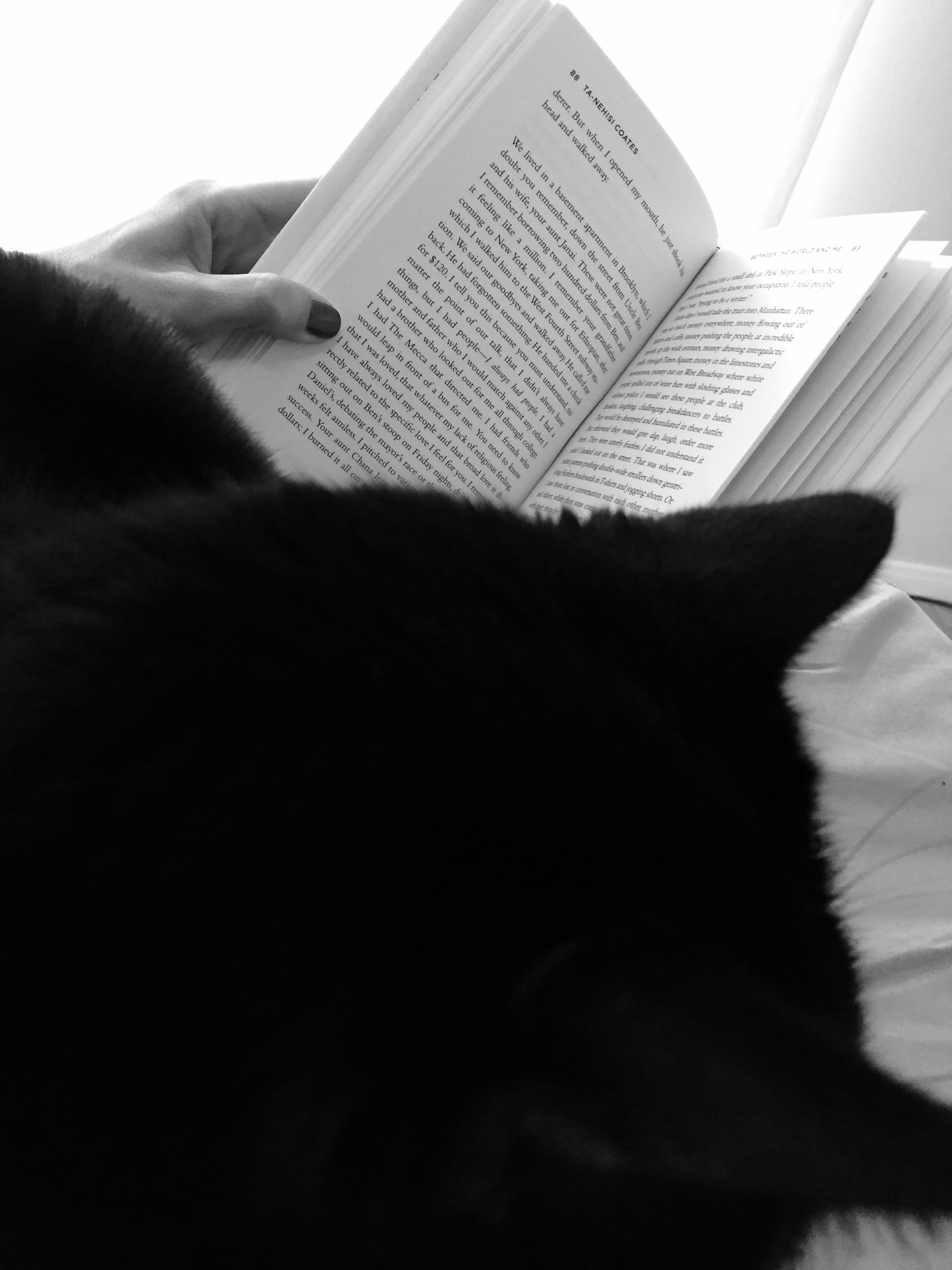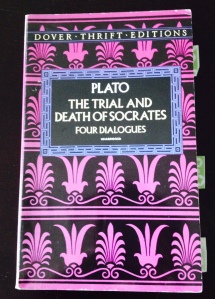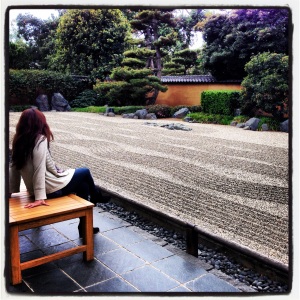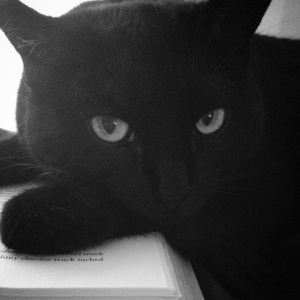It all began with a simple “Yes” I typed in response to an email from the chair of the Philosophy Department.
I was in the throes of massive coffee consumption, grading exams, and preparing to give a talk at a conference in Chicago, and so, I admit, I didn’t entirely grasp what I was saying “Yes” to.
It turns out, I had agreed to take on another professor’s class: Philosophy of Sex. Well, okay then. I requested the same textbook to be ordered for the syllabus. No, I hadn’t read it.
My background is in Existentialism and Moral Theory. My course load is comprised of classes in that framework. To say Philosophy of Sex was outside of my comfort zone and area of expertise would be woefully understated.
Including my graduate years, I’ve been teaching for about…never mind. Let’s just say Friends was still running and we were in suspense about Ross and Rachel.
In all of my years of teaching I’ve entered the classroom with the echo of something my high school math teacher once stated: “It’s my job to make sure you know more when you leave this room than when you entered.” I’ve held myself to this standard every day I am with my students.
Until…
Taking on this Philosophy of Sex course had me stumbling, blushing, and a type of tired no amount of caffeine could fix. Some topics covered in the textbook were things I had no desire to discuss, like defining the language/terms of sex as opposed to oral sex, are there sexual duties, sodomy laws, BDSM, and all things Freud, like penis envy (that absurd-only-a-man-would-think-that-idea).
I finished every class with a heavy heart as I walked to my car feeling that I hadn’t ensured my students an education or, as my math teacher had put it, knowing more when they exited my classroom. And, for the first time, a student left a scathing review of me online calling me “awful.” I know I shouldn’t have cared about that, but I did.
I was literally going over the chapters of the textbook at the same pace as the students, coming into class to discuss what we’d all just read for the first time. It was a humbling experience, and one that reminded me of a truth I’ve always known but only felt now in a profound way; namely, to teach, in part, is to embrace also being a student. That is, teaching does not the mark the end of one’s education, it’s couched in the continuing process of it.
Fortunately, I recruited my friend, the fabulous writer Stephen Elliott, to give a guest lecture on his piece from The New York Times “Three Men and a Woman.” Class lecture on kink covered!
I also managed to get the incredibly interesting writer Antonia Crane (author of Spent: A Memoir) to speak on the politics of sex work. She was engaging and brought a great energy to the class (for which I am oh so grateful!). I got to be present, take a seat, and learn right along with my students.
It is with little irony that throughout the academic term I was also starting a writing project, a book all about the dynamics of teaching. I’ve been toiling with an outline framing the various angles of what teaching means and how we learn. For this project I’ve been conducting interviews to include in this book.
So, for the last few weeks I’ve either been in the classroom wondering how to manage actual teaching conundrums or running about meeting people to gather their wisdom on teaching. I’ve kept coffee shops around me in business.
With every meeting, much to my delight, I was reminded of how to view my own plight in teaching a class I found challenging.
Here are some nuggets of wisdom from my interviews:
I traveled to Chicago to meet with two of my friends from grad school, Dan Hutmacher and Dr. Drew Dalton. Both are brilliant and my meetings with them not only gave me food for thought, but had the added bonus of transporting me to memories of our grad school days in Leuven. Dan has undergone quite a journey from academic studies, to the corporate world, to recovering with and dealing with Crohn’s. He’s devoted much time to teaching others about this disease. He told me he’d been teased in the corporate world for spending his studies in Philosophy. But, he said, when your body is trying to kill you and you’re in the hospital, philosophy is what saves you. He reminisced on the writings of Levinas. After much surgery and recovery, he’s devoted time to creating a blog teaching others about Crohn’s.
Drew spoke much about his love of being in the classroom as we walked all over downtown Chicago. In the throes of conversation he’d point to this place and that offering a brief history. He’s Yelp personified. He proposed that the subject “philosophy of teaching” be inverted to “teaching as an act of philosophy.” He said, “In the classroom that’s where philosophy is happening.”
At a café in Atwater Village I met my friend Chris McKenna, a charming actor with an infectious smile. Seriously, one can’t help but smile around him. Or look up. He’s six foot three. I asked him how he continues to learn his craft. He told me he reviews his performances, studies them, and thinks of how to improve. In other words, Chris learns, in part, by self-reflection and a desire to be better.
In my hometown Pasadena, my friend Patil, a teacher at an Armenian high school, smiled as we spoke over coffee when she talked about her love for her students. She cares for them and invests in them. As a mother, she explained, I treat them how I’d want teachers to be for my daughters. This reminded me that teaching is not merely a job, it’s a relation to others.
One evening in Orange County, while enjoying sushi with my friend and roommate from college, Jennifer Arnoldt, I asked her what people should know about going into corporate America. She answered, that no one knows what they’re doing. But, she continued, you go to work and figure it out. Well, I certainly needed to hear that!
On Melrose in West Hollywood, and a bottle of wine into the interview, I asked my friend Mike Racanelli (a man of several creative feats: producing, writing, acting), what inspires you? He leaned back, folded his arms and said, that’s a good question. Thank you, I replied. Hmmm…what inspires me?, he halfway mumbled. Everyone I meet, he said. You’re welcome, I said. Mike clued me in on the importance of finding the interesting and the possibilities to flourish with every encounter.
At the Cal Poly Pomona campus café I chat with Professor Tom Keith about his work making documentaries and how he decided to make films. He gave a humble smile and admitted that his first film, Generation M, was a project he never expected to get any traction. Really? I asked. It’s insightful and I’ve shown it on more than one occasion to my classes. For him, it was a way to reach out with the medium a lot of students use. You have to meet them where they are, he said. He’s now working on his fifth film. His disposition regarding teaching is one where he respects how the students learn and not just approaching teaching as the way in which he wants to deliver the material.
And, at this point, I’ve reached the end of the academic term. It was with genuine surprise a few students in the Philosophy of Sex class told me they enjoyed the course. My heart warmed with the news. Because, in all honesty, it’s about them and I want for them to learn.
I knocked on the chair of the Philosophy Department’s door. I confessed that I wasn’t sure how the class went, that I fumbled through the lectures, and I may have made of mess of things. It’s okay, he said with a shrug. Want to do it again in the fall?
“Yes.”
Click for My Amazon Author Page








